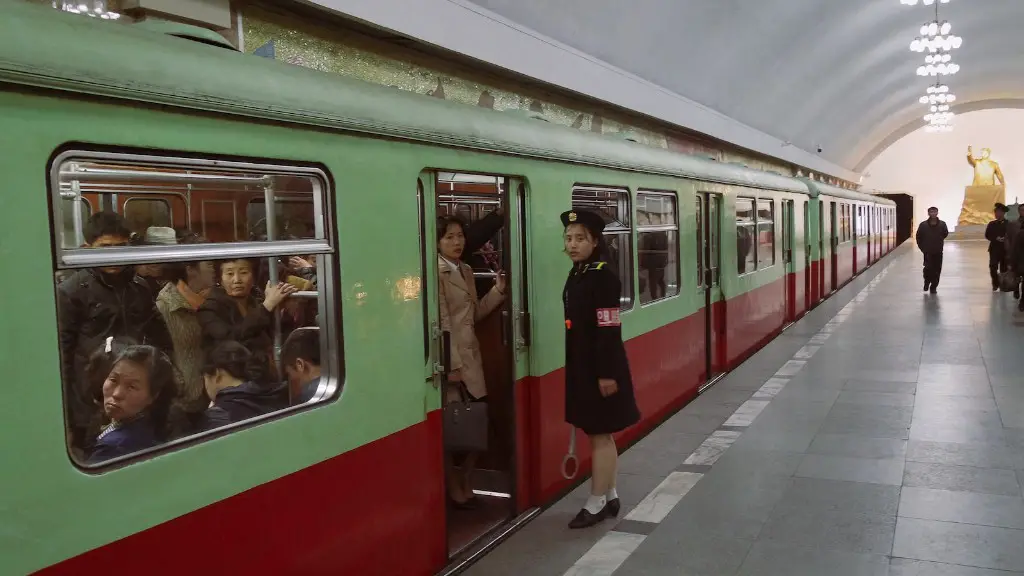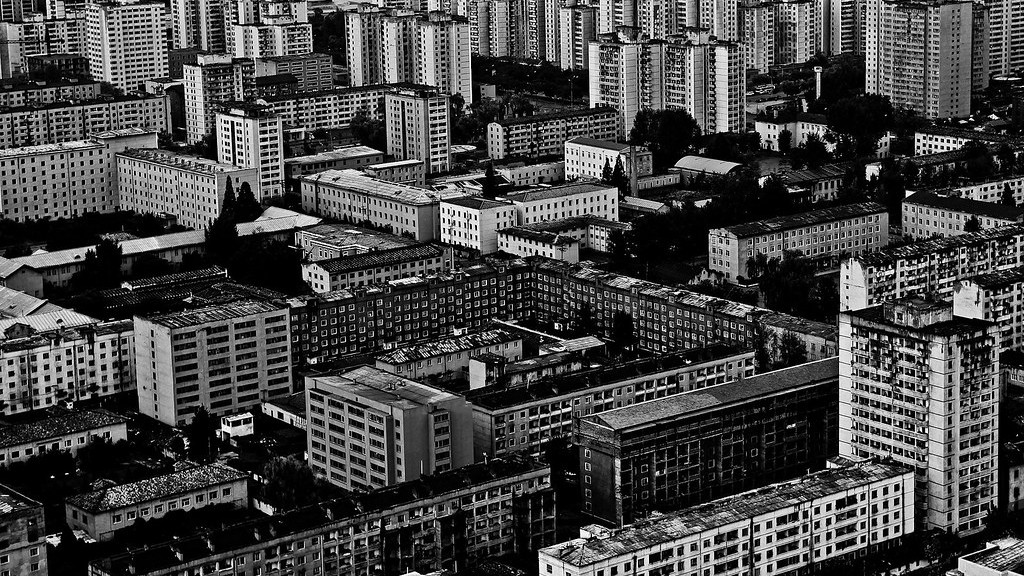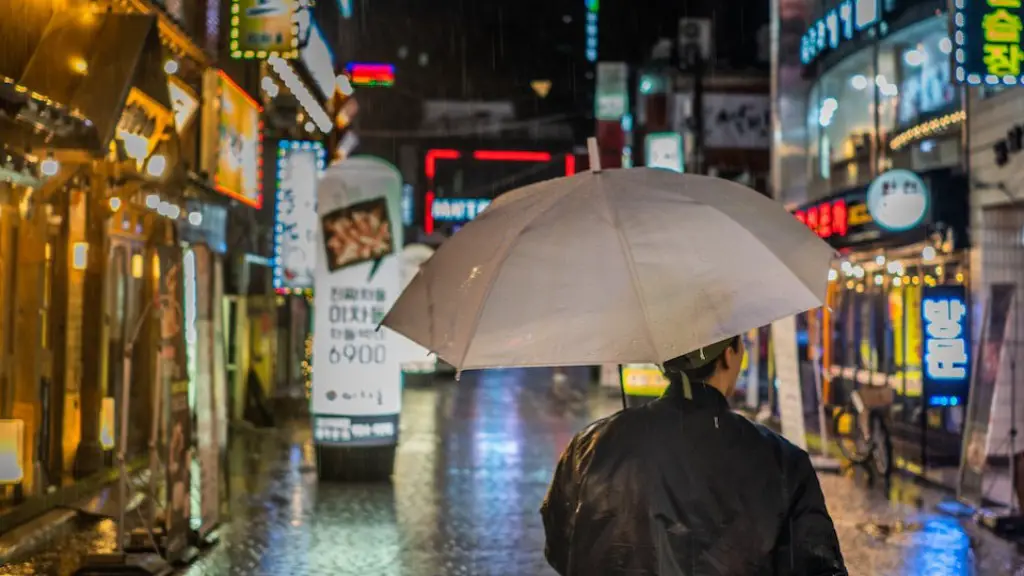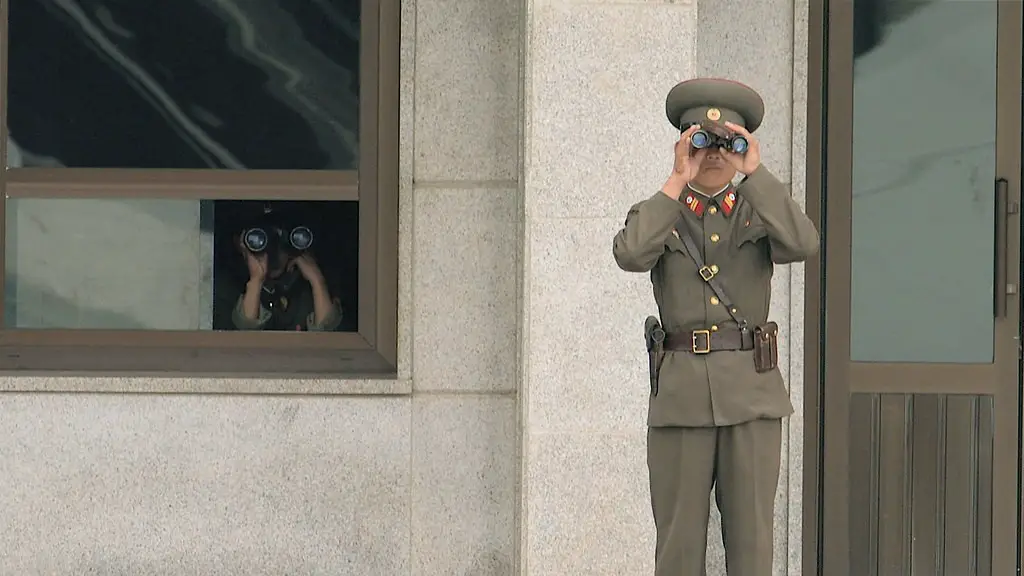North Korea remains an enigma to the outside world, with little known about the reclusive nation and its activities. Between news reports and film portrayals of the country, one of the most striking things that one notices is the complete lack of light in North Korea at night – the country almost disappears from view. But why is the nation in almost total darkness?
Experts say that the majority of North Korea’s citizens are living without electricity, with an estimated 75% of the country said to be without power after several decades of poverty and isolation. According to a 2018 United Nations Human Rights Council report, nearly 18 million people – more than half of the population – do not have regular access to electricity.
Prior to the US-led sanctions of 1994, North Korea had a relatively well-developed infrastructure. Despite some early enthusiasm from international partners and a modernizing growth period in the early 1990s, a series of disruptive events have led to the nation’s current lack of electrical power.
The country suffered a series of natural disasters during the 1990s, including a devastating famine and a series of devastating floods. In the face of this destruction and the US-led sanctions, North Korea’s economy and infrastructure deteriorated greatly. Moreover, the country suffered from poor management and a lack of resources, leading to even greater economic struggle.
In recent years, the nation has worked to improve its energy crisis, including developing new sources of energy such as solar. Unfortunately, the economic crisis has led to even further darkness, with the government unable to afford to upkeep or replace the aging and failing power plants. As a result, even cities such as Pyongyang have suffered from frequent blackouts, leaving residents in darkness for periods of the day and night.
Regardless of the causes, North Korea’s darkness remains a stark reminder of the nation’s unique situation. While many countries across the world make efforts to turn on the lights and embrace the future, the nation’s lack of power has left large portions of its population living without even the most basic of luxuries.
Environmental Implications
One of the most significant implications of North Korea’s lack of power is the environmental impact that it has had on the nation and its citizens. With power plants unable to be maintained and transportation networks failing, the country has grown to rely heavily on coal and wood. The burning of these resources has only compounded the nation’s electricity woes, leading to a thick blanket of smog across the nation.
Moreover, with the nation unable to rely on electricity for a variety of functions, its citizens have had to look to other sources for energy. This has led to the increased use of fossil fuels for transportation, such as motorcycles and cars, leading to an even further increase in the nation’s carbon footprint.
Although North Korea’s government has made steps to address the nation’s environmental issues, its efforts have been limited due to its lack of resources. Moreover, the nation’s reclusiveness has exacerbated the need for remediation, leaving the majority of its citizens to suffer the environmental effects of its lack of power.
Impact on Citizens
The lack of electricity has also taken its toll on the nation’s citizens. As one of the most isolated countries in the world, North Koreans have found themselves increasingly reliant on their own resources and the limited aid they are able to procure. As a result, citizens have found themselves increasingly dependent on potentially dangerous sources of fuel, such as burning candles, which can lead to fires and even explosions.
Moreover, the lack of power has severely limited the nation’s ability to provide basic amenities for its citizens. With inadequacies in the nation’s health care system and educational systems, North Korea’s citizens have been unable to access modern technologies and services that are commonplace in the rest of the world. As a result, citizens are increasingly living in a state of technological deprivation.
Furthermore, with transportation networks running on limited resources and fueling, citizens have been unable to access essential goods and services, leaving many relying on the black market for necessities. The nation’s lack of power has only made the situation worse, as citizens have begun to lose even basic access to food, medicine, and other essentials.
International Support
In recent years, the international community has taken increasing steps to address North Korea’s power crisis. In 2018, China agreed to provide assistance to North Korea, with a view to assisting the nation in developing its electricity infrastructure. Moreover, the US has made numerous efforts to aid North Korea, although the Trump Administration has notably rolled back on its assistance efforts.
This international aid has been largely welcomed by the North Korean people, who are hopeful that the donations will help move the nation toward more comprehensive energy solutions. However, the nation’s struggles are far from over. As the population continues to experience darkness each night, the importance of finding a lasting, stable energy solution seems even more pressing.
Political Objectives
In addition to its impact on everyday citizens, North Korea’s lack of power has also impacted its political landscape. Although the nation’s government has made efforts to increase its electrical resources, the vast majority of its citizens continue to suffer from darkness. Moreover, this lack of power has been used as a tool by the regime to limit its citizens’ access to the outside world, with most North Koreans lacking access to the internet and its information.
The North Korean regime has used its lack of power to its advantage for decades. By keeping its citizens in the dark, the government has been able to maintain control over its population, limiting their access to news and information from the outside world. As a result, the nation’s citizens are often ill-informed about what is going on outside of their own small, isolated nation.
The power crisis has also been used as a political tool by the government to limit its citizens’ ability to exercise their rights as citizens. By keeping them without power, the government has been able to severely limit its citizens’ civic engagement. This has led to a lack of political participation, as well as fewer opportunities for citizens to voice their grievances.
Potential Solutions
The only potential solution to North Korea’s power crisis seems to be finding adequate and stable sources of income. Currently, the nation’s citizens are living in extreme poverty and deprivation, leaving them unable to obtain the resources they need to upgrade their infrastructure.
However, getting to this point will require immense international cooperation and understanding. The West and North Korea have historically had difficult relations, with the US and its allies imposing harsh sanctions on the nation. This has only deepened the nation’s power crisis, as the regime has been unable to secure the resources it needs to address the issue.
Moreover, domestic reform may be necessary, as the North Korean government has often failed to address the nation’s pressing needs. For instance, the nation’s power infrastructure has severely deteriorated due to the government’s lack of investment in the national electrical grid. As a result, the government has been unable to provide its citizens with the electricity and infrastructure they need to thrive.
Ultimately, the only way for North Korea to address its power crisis will be to make significant changes in its policies and approach to development. Only then can the nation begin to move forward, culminating in a brighter future for its citizens.





